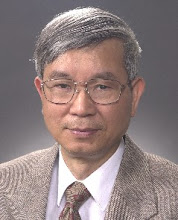By Peter Chow 周鉅原
Published on Taipei Times
http://www.taipeitimes.com/News/editorials/archives/2009/03/05/2003437650
Thursday, Mar 05, 2009, Page 8
Beijing has blocked Taiwan from signing bilateral free trade agreements (FTA) with many countries, including those in ASEAN, ostensibly to marginalize the nation from regional economic integration. That being the case, why is Beijing now offering to sign a trade pact with Taiwan?
If Beijing were genuinely interested in accommodating Taiwan’s desire to break through this marginalization, it need only allow Taiwan to join the ASEAN FTA, which would fulfill the “open regionalism” principle of the WTO.
Another alternative would be for Beijing to offer “most favored nation” status to Taiwan.
Since neither of these options have come into play, the question arises: What’s behind the proposed economic cooperation framework agreement (ECFA)? Since any negotiation is a “give and take,” it appears that what Beijing would like best is to erode Taiwan’s de facto independence and sovereignty.
There are at least three possible outcomes from the arrangement. The first possibility is that Taiwan would gain economic benefit without suffering an erosion in its sovereignty. This is the version President Ma Ying-jeou’s (馬英九) government has been trying to sell to the Taiwanese people. Under such a scenario, the treaty would be similar to the “Closer Economic Partnership Agreement” between Australia and New Zealand and must be signed in accordance with the WTO trade framework. However, Chinese President Hu Jintao (胡錦濤) has already declared that China would sign a trade pact with Taiwan only under the “one China” principle.
Neither Beijing nor the international community recognizes that there is “another China” as interpreted by the Ma administration. It goes without saying that in claiming that the “one China” in question is the Republic of China, Ma is behaving like an ostrich with its head in the sand.
The second possible outcome would be that Taiwan would suffer from erosion of its sovereignty and even trade off its de facto independence without any economic benefit. This is a likely outcome because China has never recognized the existence of Taiwan in any international context and has just been paying lip service lately to entice Taiwan to unite with the “motherland.”
Whether this scenario would actually occur depends on Ma’s strategy and whether he really cares about the freedom of Taiwan’s 23 million people. It also depends on whether the deal with Beijing was transparent to the public and whether Taiwanese would be persistent enough to fight against it.
The third scenario would be a mixed result, with Taiwan trading off sovereignty for some economic benefit. This would be a sugarcoated poison for Taiwan and would lead it to become like Hong Kong. Even if Ma’s wishes for economic benefit were fulfilled, the trade-off between de facto independence and economic interest would probably only benefit a small segment of Taiwanese businesspeople at the expense of the nation as a whole.
However, the third scenario is the most likely outcome for three reasons. First, China has to get something back from Taipei and eroding Taiwan’s sovereignty is the most attractive return for Beijing. Secondly, sovereignty is a public good, which, unless well-specified, everybody would take for granted and no one would stand up to defend. On the other hand, the economic benefits of cutting tariffs would be concentrated in well-organized interest groups. In any democracy, an organized minority is the majority in policy-making. Thirdly, unless the deal is transparent, the public and even legislators would be blinded and enticed by the bait from Beijing.
Peter Chow is a professor of economics of City University of New York.
Subscribe to:
Post Comments (Atom)

No comments:
Post a Comment